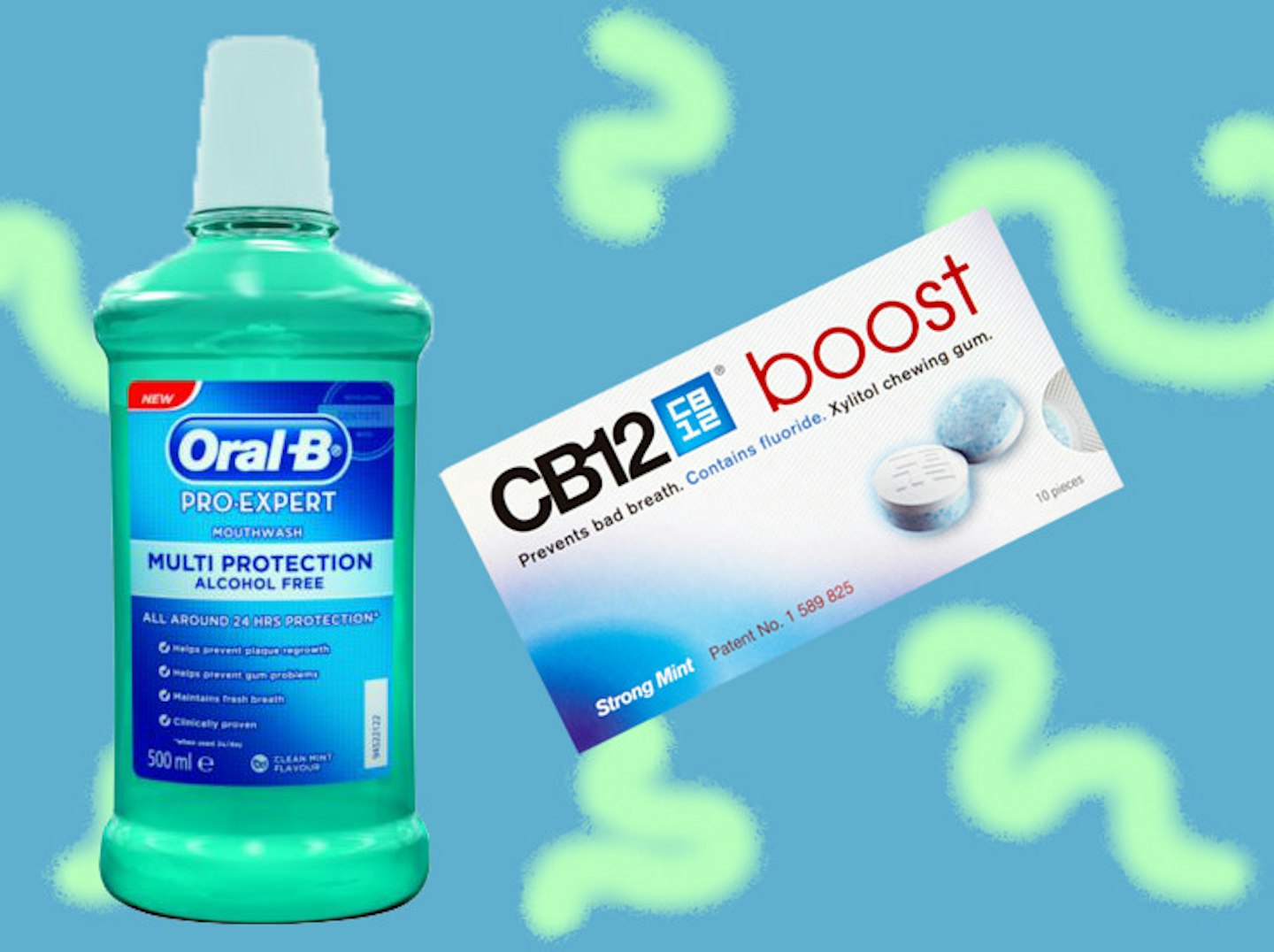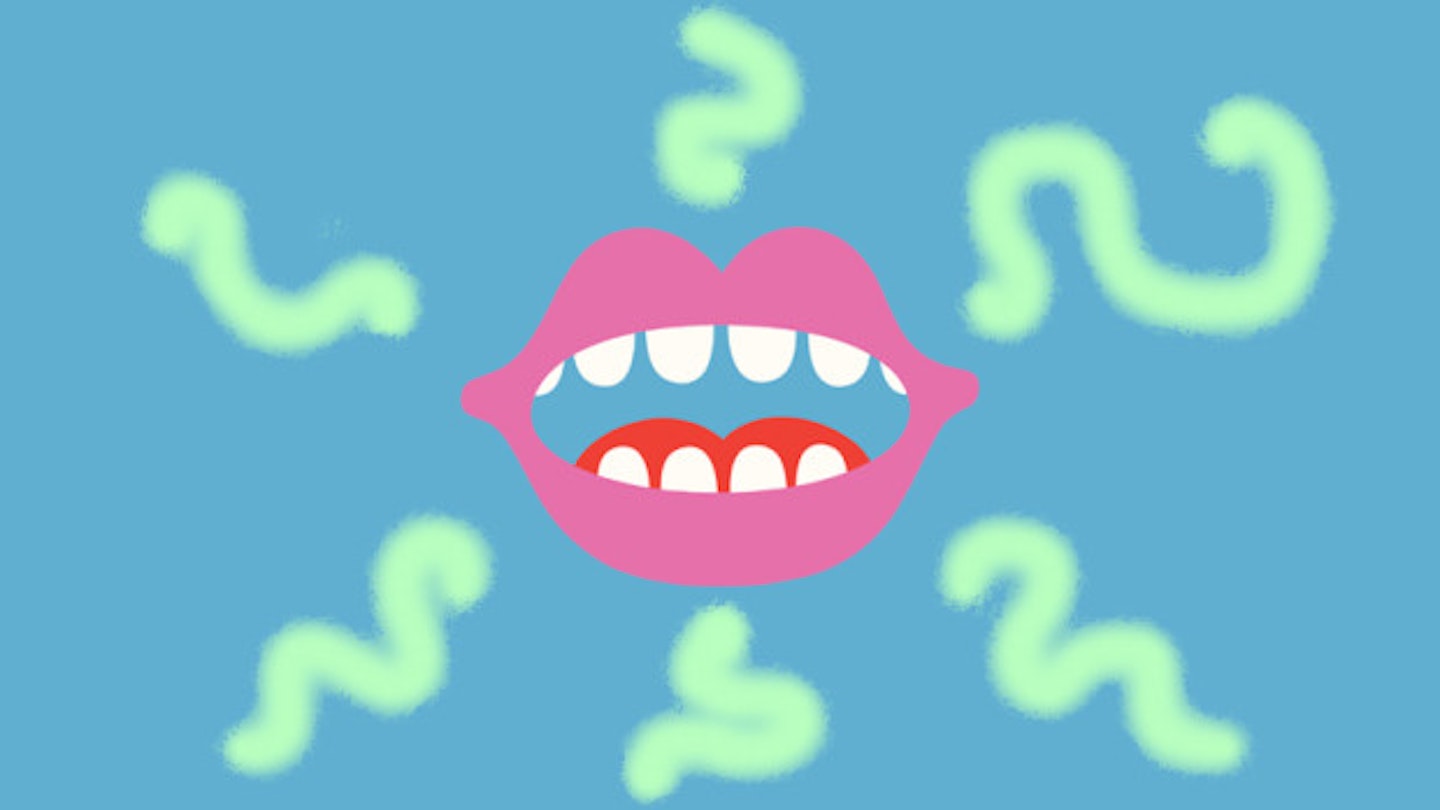This is probably my least favourite article I’ve written to date, simply because it’s gross and I have quite a weak stomach. Not a great combo. But it’s got to be done because bad breath (or ‘halitosis’) is one of those things that we all think about, and are pretty much convinced we always have. Let’s be toothful (I’m sorry, it’s too easy) there’s nothing more off putting than bad breath when you’re about to go in for a kiss, apart from them calling you 'mum' by accident. That’s a definite mood-killer. So let’s chat bad breath, how to deal with it and how to avoid having it in the first place.
What causes bad breath?
Usually bad breath is caused when you don't practice good oral hygiene because, put simply, it's caused by a build-up of bacteria in the mouth. This bacteria then mixes with saliva to break down food, which then gives off bad smells. So if you're not brushing or flossing and food bits are lingering in your mouth, you're on your way to rancid breath. Nice.
A lack of saliva can lead to bad breath because saliva keeps bacteria in the mouth in check, so dehydration is another cause. This is why drinking alcohol and coffee aren’t a great idea if you’re trying to keep your breath fresh. Dehydration = dry mouth = lack of saliva = bad breath. It’s simple maths, guys.
We all know that strong smelling foods are not good when you’re trying to maintain a minty-fresh mouth. Garlic and onion are probably the best known offenders because they contain sulphur compounds which linger in the mouth after eating and get absorbed by the blood which are then expelled when you breath out.
Bad breath may also be a sign of gum disease which is caused by plaque (this builds up when we eat and drink and contains bacteria which can lead to bad breath if it isn't brushed away). If you have sore or puffy gums or if they have a tendancy to bleed, you could have gum disease and you should see your dentist which, FYI, you should be visiting around every six months.
Sometimes internal conditions can cause bad breath; things like acid reflux, postnasal drip and gastritis. So if your teeth wouldn’t look out of place on TOWIE they’re that great, but you still have bad breath, it’s probably a good idea to see a doctor to rule these out.
Why do we get bad breath in the morning?
This alone is why I’ve never got the whole morning sex thing: rolling over and getting it on straightaway? I don’t think so. Morning breath is again down to the whole dry mouth thing because when you’re asleep, you’re not keeping hydrated so there is a lack of saliva and bacteria builds up. If you snore or sleep with your mouth open, chances are you’re going to get it slightly worse because your mouth will be dryer. You can help morning breath by drinking lots of water, brushing your teeth and using a mouthwash before bed.
How do you stop bad breath?
For a start, practice good oral hygiene. I’m not just talking brushing twice a day (although that's a good start); you need to get your floss on too to make sure no food debris is caught in your teeth. Using a mouthwash twice a day will help as well, something like the Oral B Pro Expert Mouthwash, £4.99is a good choice and doesn’t contain alcohol which can dry the mouth out. It’s also worth investing in an electric toothbrush if you want to really take care of your teeth because they make sure you brush for the right amount of time and mean you’re less likely to miss areas.
Dentist Luke Thorley, recommends limiting your intake of acidic foods and drinks, ‘Things like fruit juice and tomatoes encourage bacteria in the mouth to reproduce much faster.’ So it’s not just garlic you’ve got to watch out for when you’re on a date.
Chewing sugar-free gum is a good start, this causes the mouth to produce saliva so helps keep it moist and bacteria-free. If the standard stuff isn’t doing it for you, try CB12’s Boost Strong Mint Chewing Gum, £4.99 which contains zinc acetate to neutralise bad smells.

Eating fresh fruit and vegetables is a good idea too because they act as a natural cleanser and help awash away residual food from the mouth. ‘Red bell pepper and broccoli are great for your breath as they contain vitamin C which creates a hostile environment for mouth bacteria, helping you stay fresh,’ explains Luke. And of course keeping hydrated is another easy way to help bad breath and it'll help you in other ways, too.
Like this? Then you might also be interested in:
Dry Skin? Athlete's Foot? Here's How To Make Your Gross Feet Look Nice
Follow Chemmie on Twitter @chemsquier
This article originally appeared on The Debrief.
